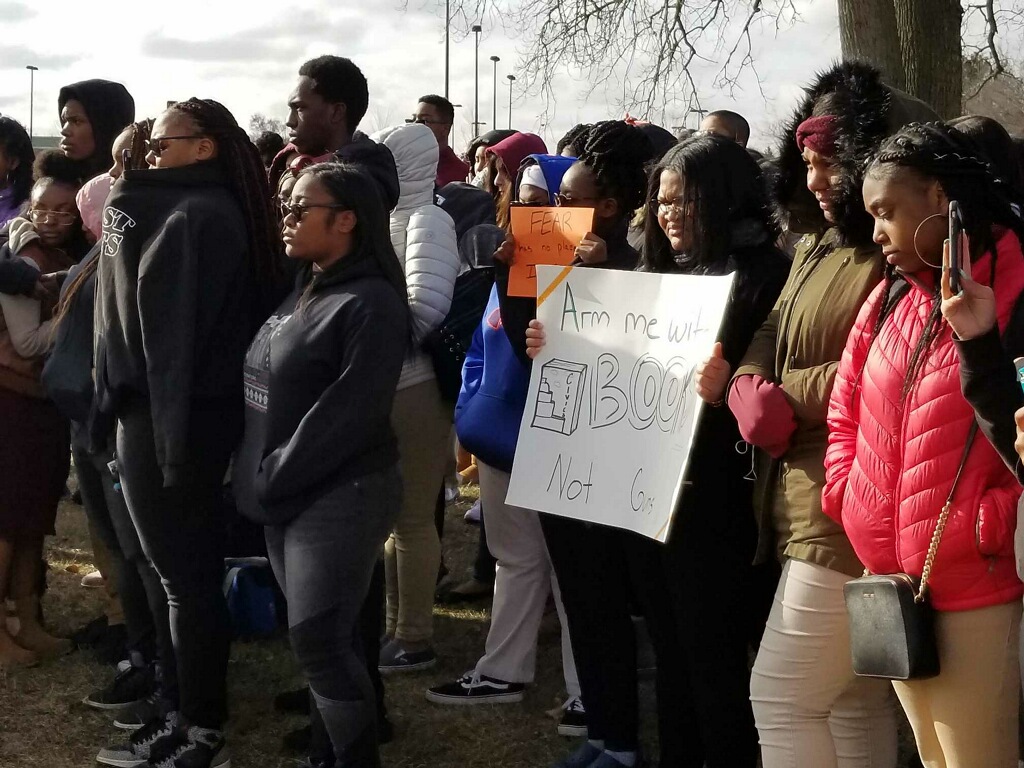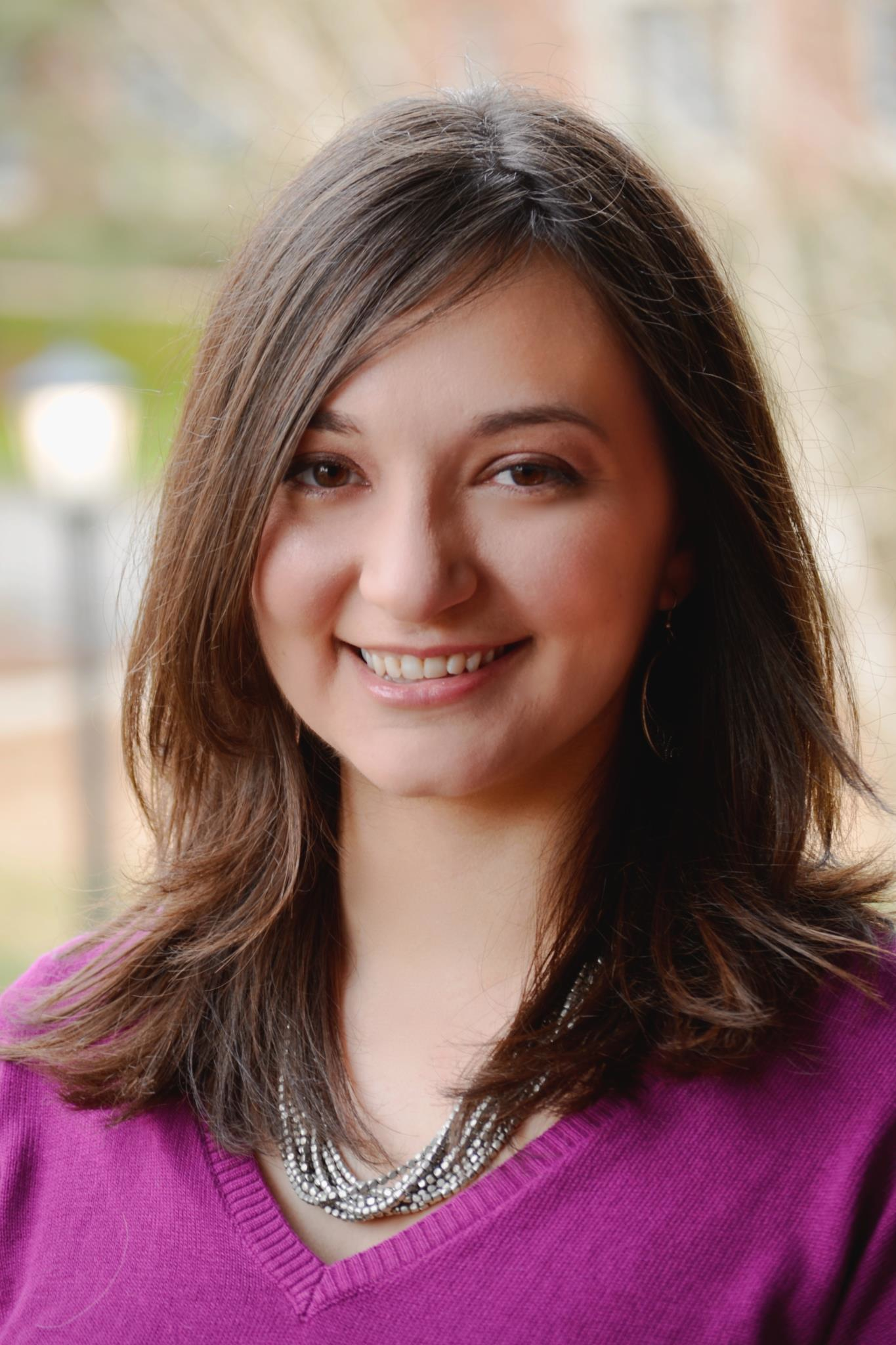When Traumatic Events Occur, Teachers Face Student Concerns
The ‘Days After’ project helps educators address traumatic events, including school shootings, climate change and political tension.

When school shootings, natural disasters or incidents of police brutality make the news, students take their concerns about that news into the classroom.

Alyssa Dunn is an assistant professor at Michigan State University. Her project, Teaching on Days After, looks at how teachers respond to big events in the news or in the community.
“We found that a lot of teachers were enacting what we call the pedagogy of political trauma, because that’s what they felt the students were experiencing: trauma.”
Dunn started the project after President Donald Trump was elected in 2016. She says after the election, teachers reported students were worried about being deported. One fifth grader told a teacher he was afraid of being shot in the street.
She says these events, and issues like climate change, impeachment and U.S military actions such as in the recent conflict with Iran, are “teachable” moments with the power to have enormous impact on students.
Click on the player above to hear Alyssa Dunn on her ‘Teaching on Days After’ project.
Sascha Raiyn, 101.9 WDET: What are “days after?”
Alyssa Hadley Dunn, teacher: Things like school shootings, elections, Supreme Court cases, police brutality. And, you know, talking about the impact of climate change and so-called natural disasters in Australia and Puerto Rico. And the emerging tension with Iran, for example.
I imagine what you consider a teachable moments depends on who you are as a teacher, and, possibly, who your students are.
Absolutely. When I’ve been talking to teachers about these particular days after, they talk a lot about the issues that their students are bringing up. So, I think that’s one way to really tell what is a day after event that you should be talking about in your classroom.
But I think also, in some communities, there are issues that the students may not be exposed to that are still really important to talk about. So, we know, for example, that in suburban communities that are predominantly white, both students and teachers, it’s still really important to talk about issues of racism and white supremacy that we see happening. Even if it doesn’t appear immediately relevant to the students. We know that it is.
How much for you has this discussion been about people on one side of an issue collectively approaching it in the same way?
So, as an example, two of my colleagues, Dr. Hannah Baggett at Auburn, and Dr. Beth Sondel, who works for GirlGov, a civic education agency in Pittsburgh, we have written a few articles about how teachers responded to the 2016 presidential election and what they did in the weeks after President Trump was elected. And we found that it really was dependent on who the students were in the classroom if teachers felt like they had to address what had happened.
“It’s an issue of human rights and justice that teachers and communities across the political spectrum should be addressing.”
And in communities that were predominantly liberal, in terms of the students and their families, teachers definitely felt more comfortable addressing it because they felt like they would not get as much pushback from families and from administration. And in particular, it was those who were working with students who were marginalized because of their race, ethnicity, gender, sexuality, nationality.
So we found that a lot of teachers were enacting what we call the “pedagogy of political trauma.” Because that’s what they felt the students were experiencing – trauma. Based on what had happened, they were afraid that their families were going to get deported. I have a fifth grade teacher who said that one of her students was afraid that he was going to get shot in the street.
And so even though on the surface, I think that it appears to be partisan. It’s actually an issue of human rights and justice that teachers and communities across the political spectrum should be addressing.
What do you think is the consequence of not having those discussions?
For the project that I’m working on about teaching on days after, what I found most in talking to students is that they remember the silence.
So, they remember the days that their teachers did do this, you know, remembering what it was like to be in the classroom after 9/11, after Katrina. I was in a classroom as a teacher after Eric Garner was killed and Philando Castile was killed. The students who are remembering these moments, remember what it’s like to be in a classroom, and have this huge issue in their lives and their teachers to say that they’re not going to talk about it or that they’re going to remain neutral.
“So I think in classrooms, the move from quoting things about silence to doing things about silence is a big one.”
So, some people, I think, will say that it’s a teacher’s job to remain neutral. But, we have lots of research that shows that neutrality hurts our students. So, for example, if we have Iranian American students in our classroom, let’s say, and we say we’re going to remain neutral and not talk about this huge thing that’s actually not neutral at all. That is a political choice. That’s a choice for silence in the face of oppression. And I think students deserve better than that.
People from all sides of the political aisle love to quote MLK, and one of the quotes that gets repeated a lot is ‘our lives begin to end the day we become silent about things that matter.’ So I think in classrooms, the move from quoting things about silence to doing things about silence is a big one. And teaching on days after and teaching about equity and justice is this one way to combat silence that too often permeates our classrooms. Teaching on days after, really it necessitates a refusal to be silent.
We’ve talked about the experience of students and how teachers are responding to the experience students, but I’m wondering about the experience of teachers in making that decision to claim those teachable moments — maybe even feeling that they have the rights and the ability, the support or protection to claim that teachable moment. What have you found?
What I found is that teachers want to be doing these things. They want to be responsive to these moments. But many of them are feeling lots of pressure from various sources about whether and how to be able to do it.
So especially for new teachers, they’re worried about diverting from the curriculum. For teachers who are, for example, ideological outsiders in the communities where they teach, they’re worried that it’s going to be framed as too political.
“I’m not going to lie and say that it’s not political. But all of education is political.”
So, I’m not saying that this work is easy. I’m not going to lie and say that it’s not political. But all of education is political. Like what books you teach is political. How textbooks are written. So I think understanding that every move that teachers make in the classroom already is political and that to be political is not bad is a first step in making sure that teachers feel empowered to do this. And so many of the teachers that I talked to said that, ironically, these were the days that they remember the most. Because on hard days, the place that they wanted to be was in their classroom with their students.
Are there skills that are particular to doing this?
Teachers who do this really well have a strong understanding of what good teaching looks like, of what it means to have a relevant curriculum, to teach for social justice. And they understand what it looks like to center the students and humanize them in the classroom. So, teachers who do this well are willing to take risks, to change their curriculum at the last minute, you know, to stay the night after something happens. They have to be consistent and critical consumers of the news and advocates for their students critical literacy and consumption of the news.
And so I think that there are ways that teachers can learn to do this. But I also don’t think you can just teach on a days after. You can’t teach for equity on a day after if you haven’t been teaching for justice on days before and days during.
Support the news you love.
Here at WDET, we strive to make our journalism accessible to everyone. As a non-profit public media institution, we maintain our journalistic integrity through independent support from readers like you. Because you value WDET as your source of news, music, and conversation, please make a gift of support today. Even $5 helps!
